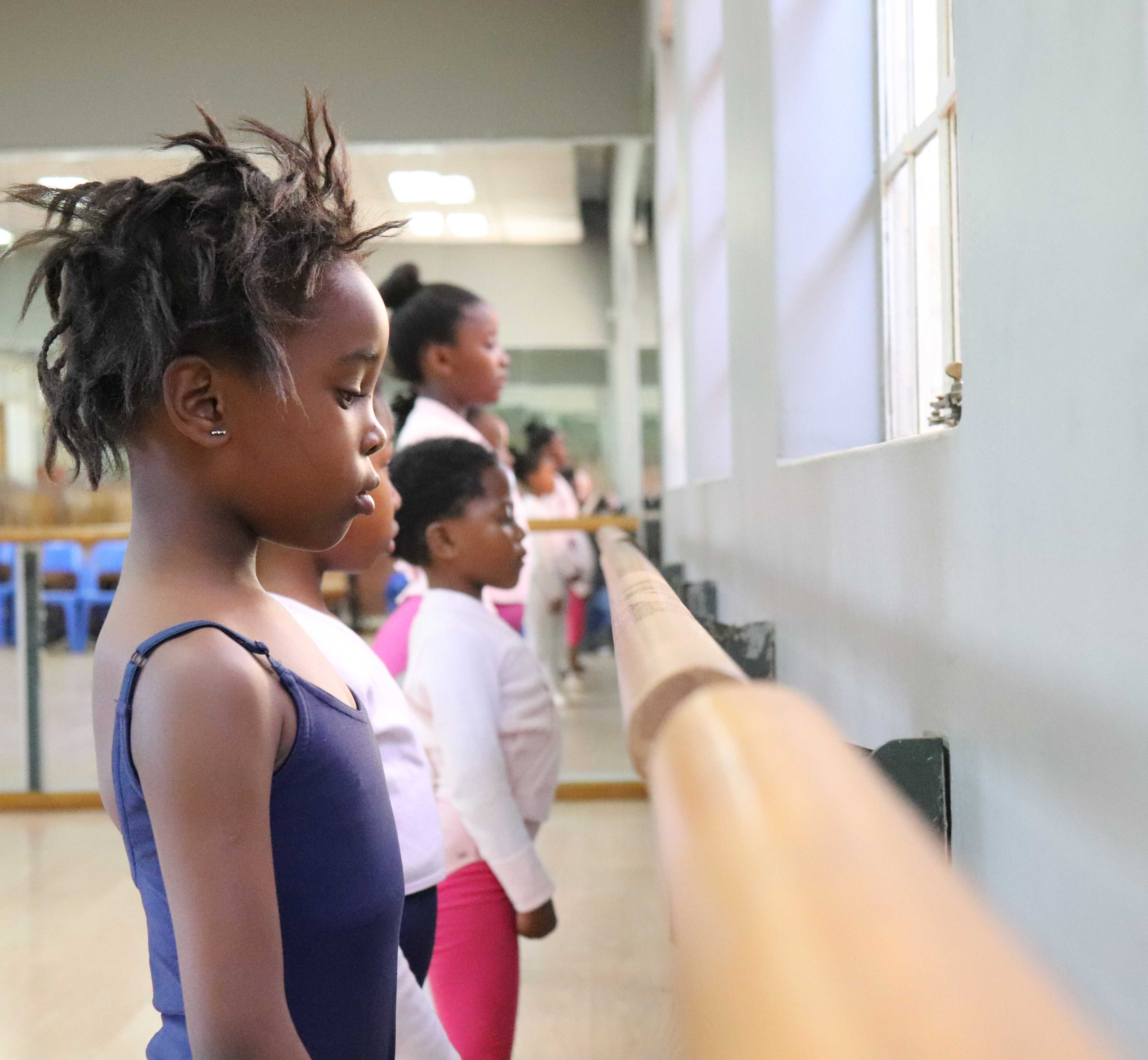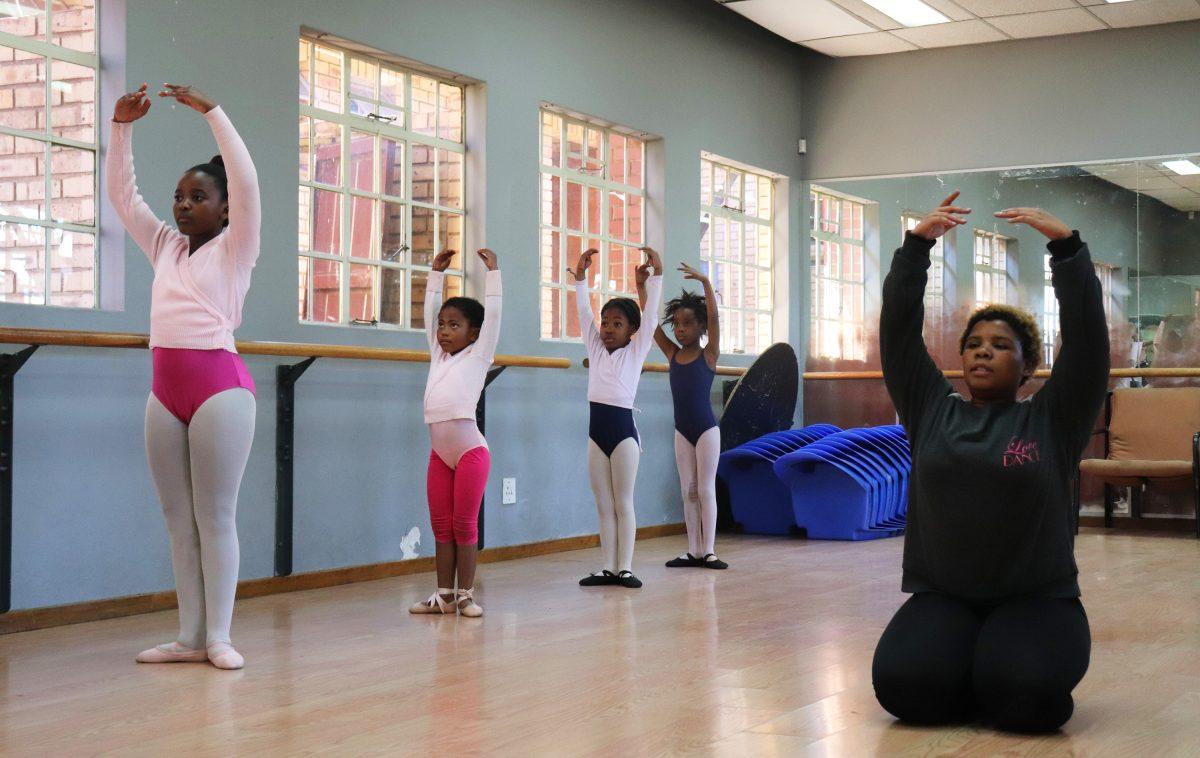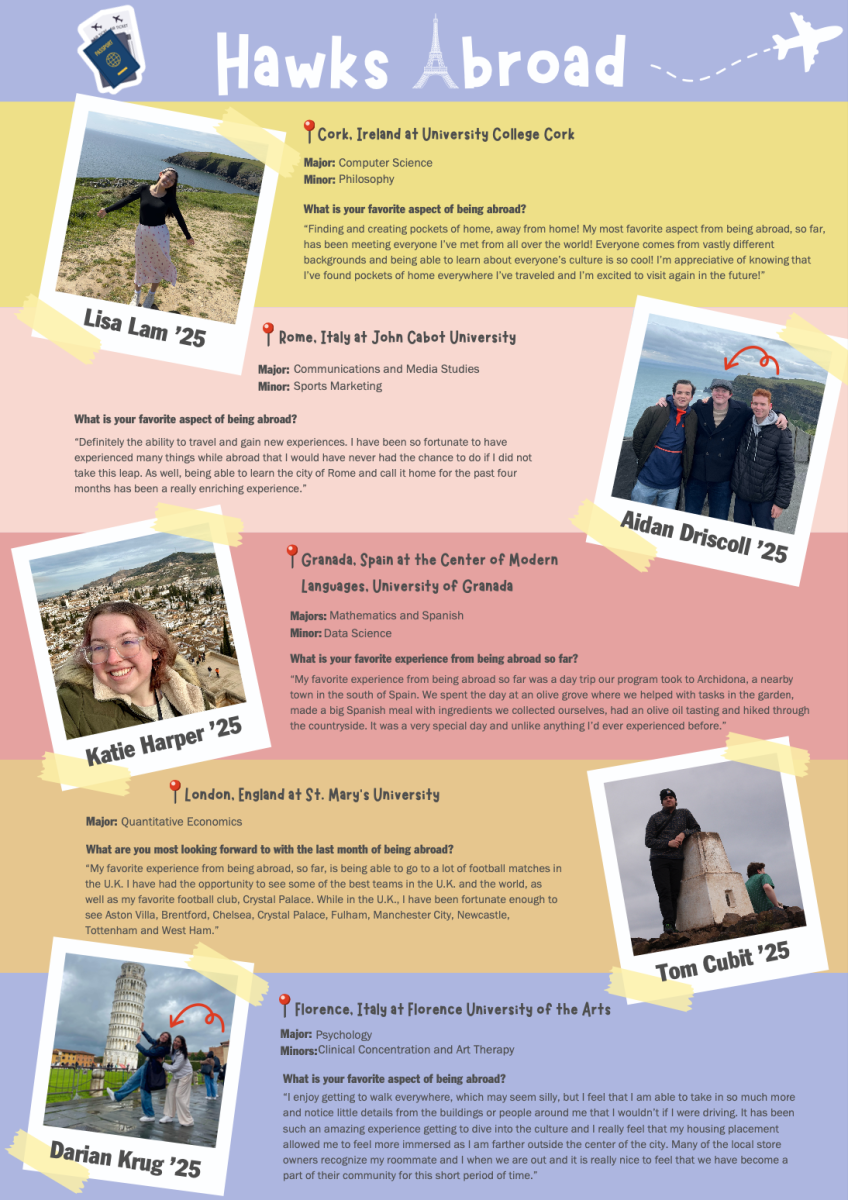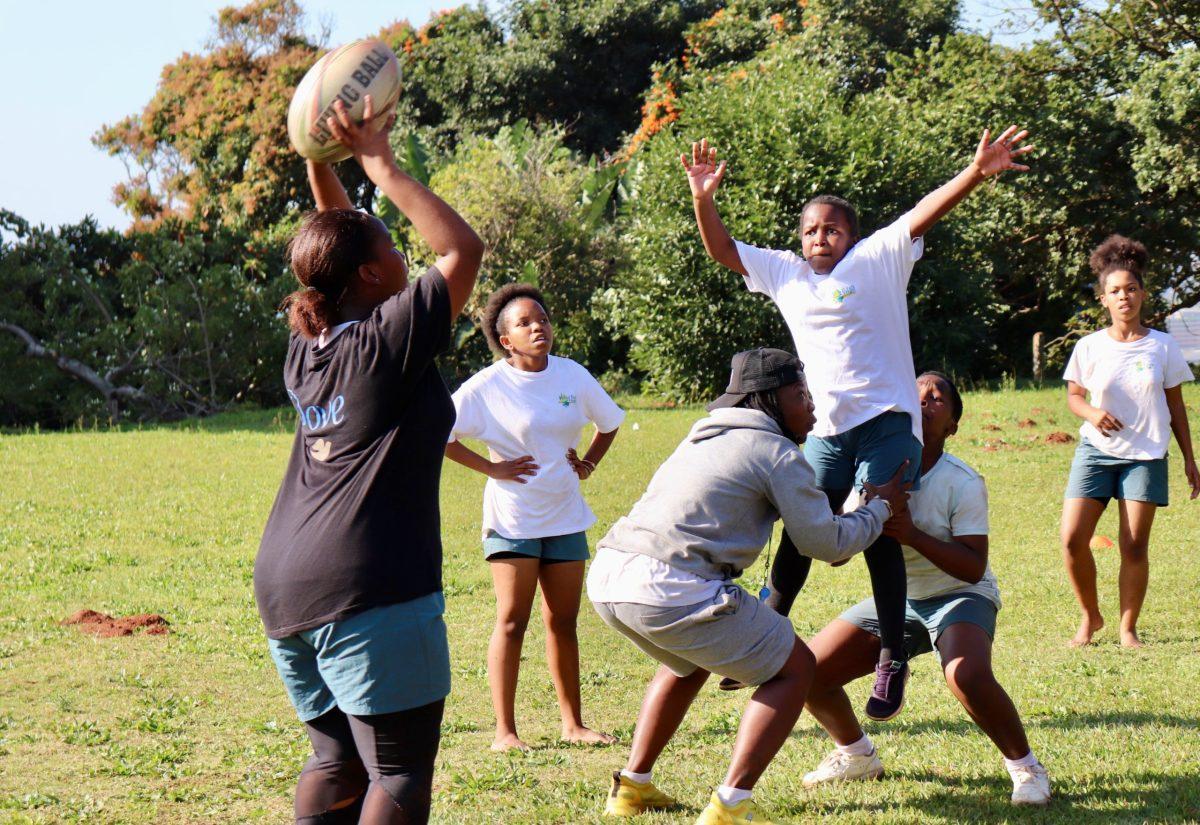Soweto, South Africa — In a small dance studio in a community center in the township of Soweto, six young black girls decked out in pink stood in first position at the barre.
This small troupe of girls learning ballet at Uncle Tom’s Community Center are students in one of the Joburg Ballet’s three Satellite Schools, located in the townships of Soweto and Alexandra, and in the central Johannesburg suburb of Braamfontein. The Joburg Ballet is a professional ballet company based in Johannesburg that operates a Ballet School and Academy for pre-professional students.
As of June 2019, about 100 students are enrolled in the Satellite Schools, according to Jo-Anne Wyngaard and Tshego Masoabi, co-directors of the Satellite Schools since 2014. The Satellite Schools offer dance classes three times a week for children ages 6-12 taught by dance professionals for a subsidized fee of R100 ($7) per month.
“It’s far less money than anything that you would pay if you were going to dance at a private school,” said Masoabi, who is also a dance teacher for the Satellite Schools.
Many parents stressed their children are not only learning ballet, a foundation for many other dance forms, but also the discipline that is central to ballet.
“I think the one thing I really love about ballet is the discipline it instills, and the etiquette that she will have,” said Thandolwamahlase Sibsi, whose 7-year-old daughter, Alwande-Uthanda, is a student at the school in Soweto. “She’s very disciplined, especially with the time. She knows, ‘I don’t want to be late for ballet.’ She’s always cautious about those things.”
Sibsi said it’s important for her daughter to know she can pursue dance if it’s what she is passionate about. In apartheid South Africa, ballet was the preserve of the dominant white culture and society, inaccessible to people of color.
“Our history in this country is very sad in a way because there were so many things that black people were not necessarily able to dream of doing growing up,” Sibsi said. “Even with myself growing up, I wanted to do ballet at some point, but you’re coming from families that are just recently out of apartheid.”

For Nobuntu Mpahlaza, whose 8-year-old daughter, Umhle, is a student at the Soweto Satellite School, ballet was something she said felt far removed from her own childhood.
“So for me, I would have said to my mom sending us to ballet, ‘Oh, no that’s for white people,” Mpahlaza said. “I’d never seen a black ballerina on stage.”
Another parent, Nonhlanhla Nkosi, said she now regards ballet as tangible for young black children like her 6-year old daughter, Okuhle.
“It’s important for them to be exposed to other things, to explore in other things,” Nkosi said. “We never thought there’d be Joburg Ballet in Soweto, do you understand? We blacks thought, ‘Oh this is for whites,’ but no, it’s here with us.”
Keke Chele, who works in PR and publicity for the Joburg Ballet as well as teaches in the Satellite Schools, said the Satellite Schools were established for that very purpose: to expose children in the townships to more creative artforms like dance and to help them see themselves as future artists.
“As a young black man myself from the townships, I knew that a lot of these things that I saw either on TV, movies or anywhere, were very far removed from our immediate life, especially within the arts,” Chele said. “There weren’t many channels that one could follow. The company itself realized the need for unearthing raw talent in the townships.”
Ultimately, one of the main goals of the schools is to produce black dancers, said Wyngaard and Masoab.
“The point of the matter is there are black ballet dancers of South Africa that do exceptionally well overseas, but they don’t come from the academy,” Wyngaard said.
Although not all students who begin taking classes in the Satellite Schools go on to become professional dancers, Wyngaard said ballet classes gives students more than just dance skills.
“I don’t see it just for the end result of wearing a tutu,” Wyngaard said.
Wyngaard offered one former student who did not pursue dance professional as an example.
“It’s changed how she is as a person, the confidence it gave her,” Wyngard said. “If you give her tasks and duties and say you need to oversee xyz people, dancing allowed her to be that person.”









































